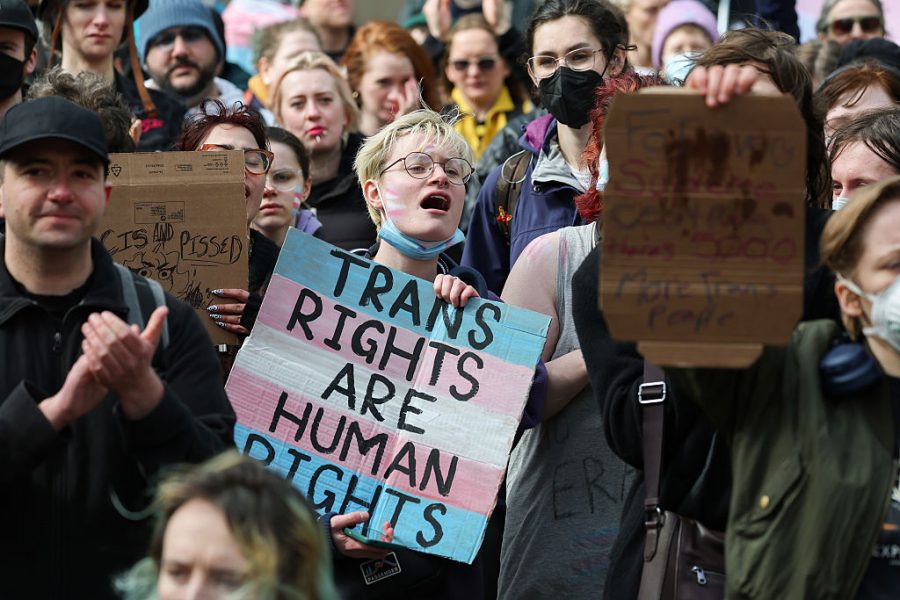The Supreme Court judgment on sex and gender was a welcome return to common sense. As far as the Equality Act is concerned, even Keir Starmer now knows that a woman is a biological female and a man is a biological male.
The task of producing new – and legally compliant – guidance for employers and service providers falls on the Equality and Human Rights Commission (EHRC). The organisation has moved quickly. In an interim update published on Friday, the EHRC asserted that where services are segregated according to sex:
The EHRC is mindful of trans people’s needs
Trans women (biological men) should not be permitted to use the women’s facilities and trans men (biological women) should not be permitted to use the men’s facilities, as this will mean that they are no longer single-sex facilities and must be open to all users of the opposite sex.
Incidentally, while it is compulsory for workplaces to provide sufficient single-sex toilets (as well as sufficient single-sex changing and washing facilities where these facilities are needed), services open to the public can choose to offer unisex facilities only. In a small coffee shop, a single unisex toilet might be all the customers can expect, but larger venues that attempt to duck their responsibilities by designating all the toilets as mixed-sex might find themselves guilty of indirect sex discrimination against women.
Personally, I am unaffected by any of this, even in my workplace. Yes, I am transsexual, but for several years I have used alternative provisions where services are provided according to sex. It’s not difficult to live this way, despite the howls of protest from the transgender lobby. I have no sympathy for those who think they have been able to act with impunity – they have now received their comeuppance and not before time. However, the objectional protestors and social media warriors are only part of the story.
I know people of both sexes who transitioned long before it was fashionable and moved on with their lives. Some had gender reassignment surgery decades ago and since then have lived ‘in their acquired gender’. Society has a duty of care to these people as well. In any case, if they are widely perceived to be the opposite sex, it would be problematic for them to use toilets and changing rooms provided for their biological sex.
The Supreme Court understood this. According to article 221 of the judgment, ‘women living in the male gender’ could be excluded from female-only services if, ‘the gender reassignment process has given them a masculine appearance or attributes to which reasonable objection might be taken’. Sex matters, but the perception of sex matters also where human beings interact with each other. The EHRC adds,
In some circumstances the law also allows trans women (biological men) not to be permitted to use the men’s facilities, and trans men (biological woman) not to be permitted to use the women’s facilities.
This puts me in a double bind. I don’t use women’s toilets and changing rooms, but I don’t like using men’s rooms either. Now, it transpires that what I want and do not want is secondary. If other men perceive me to be female – and therefore object to my presence – I can be excluded by law from the men’s as well as the women’s.
Despite the misinformation put forward by some trans campaigners, the EHRC is mindful of trans people’s needs. It acknowledged that ‘trans people should not be put in a position where there are no facilities for them to use’ and called for the provision of ‘mixed-sex toilet, washing or changing facilities in addition to sufficient single-sex facilities’.
We can expect a two-week public consultation in mid-May before the EHRC publishes updated guidance. The legal position was settled by the Supreme Court – trans women are not women for Equality Act purposes – but practical implications still need to be considered. For example, how can a service provider prove that an individual is a trans woman, if the individual swears blind that they are a woman and provides a birth certificate as evidence? If they don’t out themselves, it remains an offence under the Gender Recognition Act for anyone in an official position to disclose the fact that their legal sex has been changed.
Good practice is good practice for all, and extra unisex provision would help anyone who does not want to share communal facilities with their own sex. Trans people quietly minding their own business can use them without drawing attention to themselves, while those who identify as non-binary should be positively delighted by the prospect.
Rather than spend their weekends causing havoc on the streets of our cities, and talk about claiming asylum abroad, transgender activists might want to spend some time reading and reflecting on both the judgment and the EHRC response.
The Supreme Court judgment was certainly a victory for women, and I reiterate my congratulations to For Women Scotland, who took their case all the way to the highest court in the land. But it is not a defeat for trans people. Our rights have also been upheld, and we are all in a more secure place as a result.







Comments